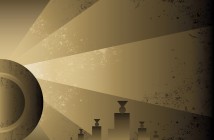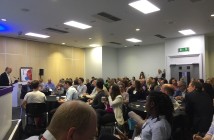The end of the year means many things to people. One thing is for sure: there will be a range of learning trends articles for the year ahead.
Those trends will tell a story of rapidly changing approaches to facilitating learning. Learning events, such as classroom-based training, will continue to decline while learning technologies will enable the learner greater ability – and hopefully freedom – to learn from their networks, be they colleagues, friends, families, professional associations and so on.
I don’t want to get into those trends here although I do intend to write a trends piece soon.
What I do want to do is point to a couple of articles that might be of interest to learning and development professionals who are at the sharp end of enabling learners to learn in a myriad of new ways. There is help at hand for those feeling spooked by the latest learning trends.
The first is the learning and Performance Institute’s Capability Map. According to LPI chairman, Donald Taylor, the newly-launched map has been very well received. If you are wondering where your skills lie in this fast-changing land of learning facilitation then check out the 27 skills that make up the map and see where you sit.
The list of skills itself is a good indication of the types of skills the LPI sees as being central to an effective L&D professional.
I also noticed this post by Clark Quinn in which Quinn talks about being made the first honourary ‘master’ of the elearning guild. If we are talking skills and capabilities in L&D then the notion of a guild – with its apprentices, journeymen and masters – is a useful one. The emphasis here is definitely on L&D helping itself to learn and develop.
Collaborative lawyer Neil Denny has written on the subject of guilds and artisan thinking. The artisan approach doesn’t necessarily have to occur within a guild, he says. It might happen in a Linkedin group or a community of practice or across a network. What marks out this approach is that individuals learn from each other and help each other to develop.
Donald Taylor said in his interview with LearnPatch that it is time for L&D to start to think about its own developmental needs. The LPI capability map goes some way towards this, as does the concept of fellow professionals helping to nurture each other and learn from each other, in whatever community or network that may be.
[Picture credit: Stephanie Hofschlaeger]




